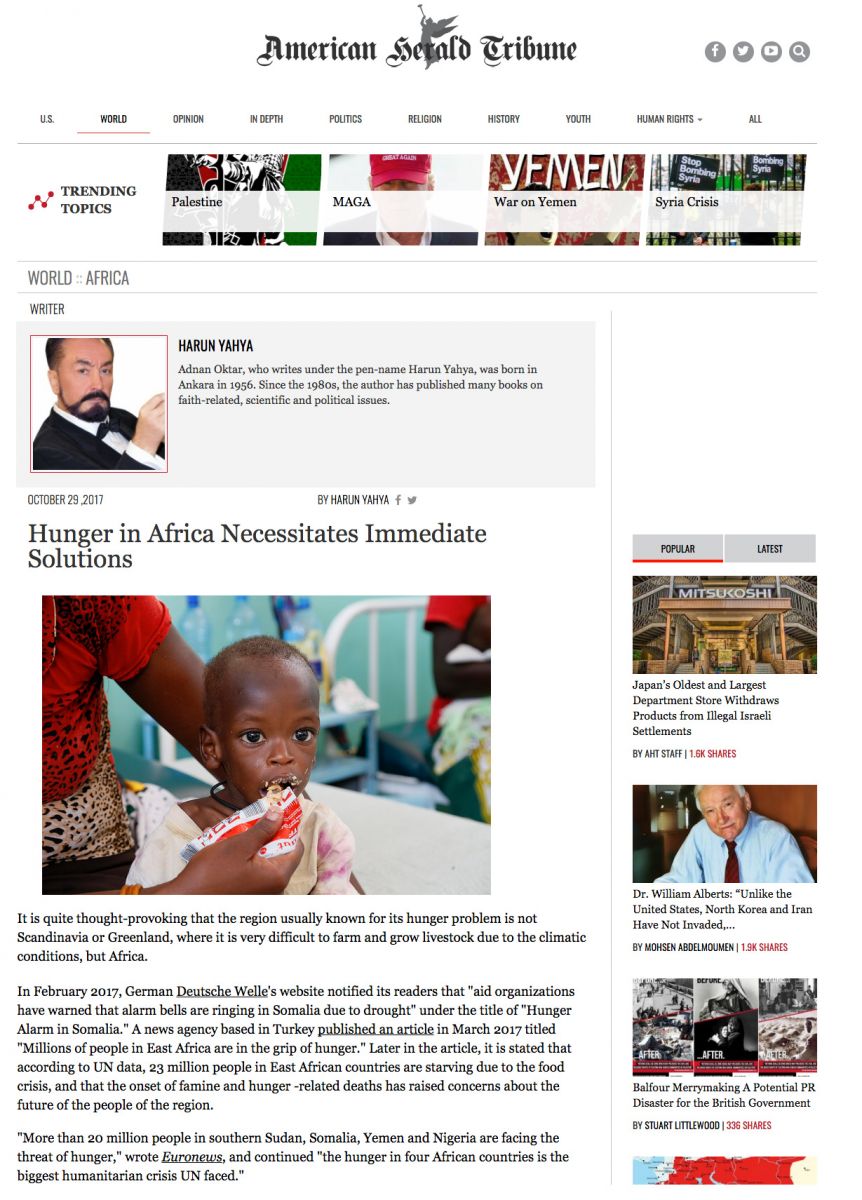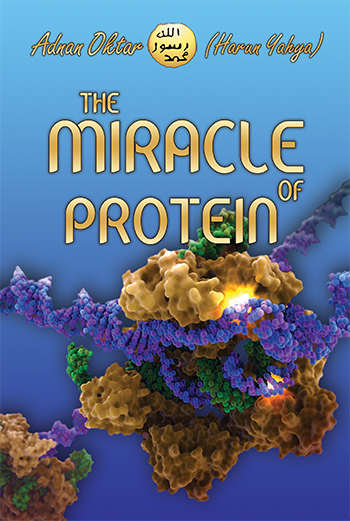Bigotry: The Dark Danger
Hunger in Africa Necessitates Immediate Solutions

It is quite thought-provoking that the region usually known for its hunger problem is not Scandinavia or Greenland, where it is very difficult to farm and grow livestock due to the climatic conditions, but Africa.
In February 2017, German Deutsche Welle's website notified its readers that "aid organizations have warned that alarm bells are ringing in Somalia due to drought" under the title of "Hunger Alarm in Somalia." A news agency based in Turkey published an article in March 2017 titled "Millions of people in East Africa are in the grip of hunger." Later in the article, it is stated that according to UN data, 23 million people in East African countries are starving due to the food crisis, and that the onset of famine and hunger -related deaths has raised concerns about the future of the people of the region.
"More than 20 million people in southern Sudan, Somalia, Yemen and Nigeria are facing the threat of hunger," wrote Euronews, and continued "the hunger in four African countries is the biggest humanitarian crisis UN faced."
All of these reports are from the current year; the hunger problem is still present in Africa. So much so that the UN Deputy Secretary General for Humanitarian Affairs and Emergency Relief Coordinator Stephen O'Brien felt the need to make a call for an international collective action: “...Right now, over 20 million are facing famine and starvation in four countries. Without global efforts, people will starve to death.”
Indeed, this situation is not easily conceivable for many Europeans and Americans who watch the gazelles in Africa running around, the tropical forests, or the flowing waters of the Nile in documentaries. For them, Africa is a continent of fertility. The news of Chinese or European companies buying or renting land for farming in Africa, which has received considerable media exposure in recent years, further reinforces this view.
But the reality of Africa is very different. Civil war, terror, drought and migration have rendered hunger a permanent scar for Africa. In the last two months, 47 children have died of starvation-related illnesses at the Banaadir Hospital in Somalia's capital Mogadishu. UNICEF informs that in South Sudan, Nigeria, Somalia and some parts of Yemen, hundreds of thousands of children are under the threat of death due to malnutrition, civil war and famine.
The situation in Somalia is concerning. As it is known, more than 250,000 people lost their lives due to the drought in Somalia in 2001. A similar situation is being experienced today. A lack of rainfall has turned wide grasslands into barren lands with only a few scrawny and thorny plants. The already poor people are traversing kilometers of land looking for a few pieces of grass to feed their animals so that the last few can survive. However, this search all too often results in failure. The UN warns that the goats and camels are dying rapidly and the Somali people will soon face a new hunger crisis.
The fact that hunger is related to drought brings up changing climatic conditions, and of course the damage we have done to nature and to the atmosphere. For example, a report jointly compiled by the presidents of the five UN institutions states that after the most recent El Nino, food security "deteriorated severely" in some parts of Sub-Saharan Africa and in southeastern and western Asia. Taking precautions on this issue is one of the ways to avoid drought in Africa.
Another solution that can be worked on is to find new food sources and to urgently promote agriculture and animal husbandry. As is known, many developed countries are developing small and large drought-tolerant breeding animals with increased meat and milk yield through eugenics. Ensuring that these animals are utilized in starving areas without being neutered can also be a solution.
The UN could be the most effective international organization in the fight against hunger in Africa. However, their solutions are often time and location based. Therefore, instead of a clear solution, they are trying to deliver aid to specific regions under the threat of starvation. In this state, the UN looks like a man rushing to extinguish fires that have started in various rooms of the house with a bucket of water. However, it is quite possible to solve the problem by creating a constant crisis fund. Many countries have their own fund for natural disasters. A similar one can be made permanent under UN control for hunger.
As a matter of fact, Gerd Müller, Germany’s Minister for Economic Cooperation and Development, addressed this issue in his statement to the Passauer Neuen Presse. Müller emphasized that the United Nations should act to take 'foresighted and preventive measures' in relation to the issue, arguing that inadequate funding of UN agencies and the fact that they require financial support in every hunger crisis are 'unacceptable.'
All of these being a solution, it is nonetheless vital that an extensive and urgent humanitarian aid campaign needs to be carried out in Africa. It is also necessary to materialize a sustainable development strategy and establish robust state institutions that can keep the negative effects of droughts under control.
The establishment of mechanisms and functioning state institutions that can prevent a drought from turning into catastrophic famine is indeed not a problem solvable by only a few countries. The international public, especially in some Western countries, providing support for these countries and their collective help in the aid and development efforts will ensure that the problem will be resolved without causing further loss.
Adnan Oktar's piece in American Herald Tribune (USA):
https://ahtribune.com/world/africa/1979-hunger-in-africa.html
2017-10-29 19:44:34






